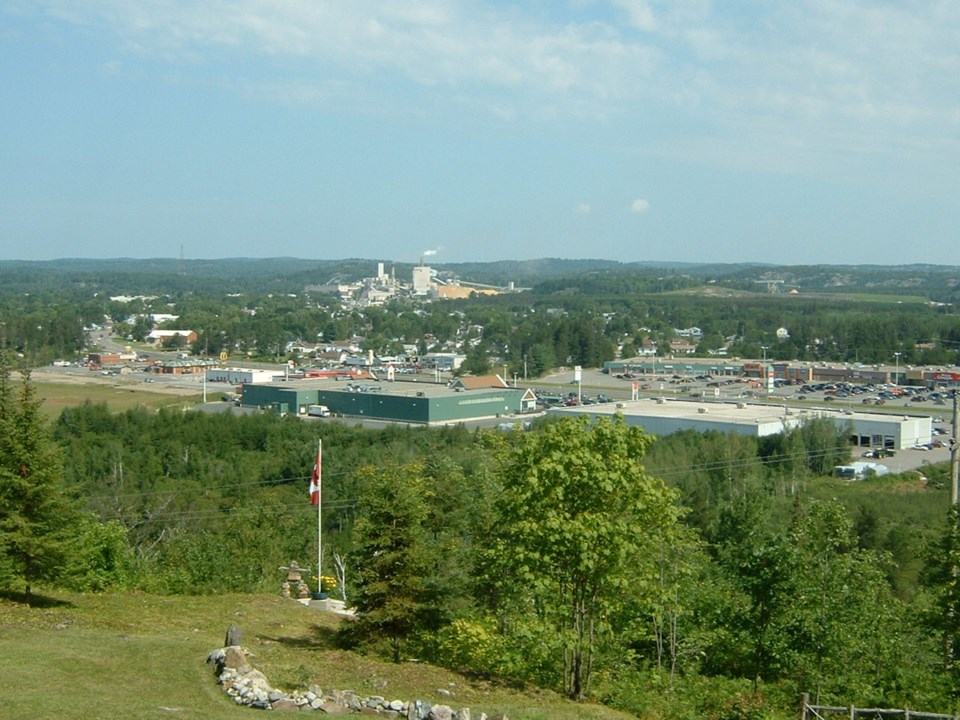Espanola Mayor Doug Gervais was shopping in Sudbury on Wednesday when he fielded a call, just after 11 a.m. A Ministry of Natural Resources official was offering his support for whatever his community required.
“Excuse me? I don’t know where you’re going with this,” replied Gervais.
“Oh, you haven’t gotten the news.”
Fifteen minutes earlier, Domtar, the largest employer in the community of 5,000, posted a release that production was being halted at its Espanola pulp and paper mill this fall. The entire facility would placed into an indefinite idled state come November. The shutdown would last longer than a year.
The company attributed the decision to the high costs of running an unprofitable and aging operation.
Gervais drove the 70 kilometres home, his phone blowing up.
“I didn’t have a clue what was going on."
What followed were two days of meetings with provincial cabinet ministers, Nickel Belt MP Marc Serré, and Domtar senior executives.
Company officials, Gervais said, apologized for the blindsided way the news was delivered, but provided little additional information.
It was well-known in town that Domtar had the mill up for sale. Workers said the company had stopped investing in the operation.
After ushering 70 employees into early retirement in 2019, Domtar promised a multi-million-dollar capital upgrade, then backed out when the refit costs became too high.
The shut-down decision took everyone, the union included, by total surprise.
Right now, Gervais said the focus is on the 450 employees facing a pink slip in November.
Early Thursday morning, Gervais went to the plant gate for the 6 a.m. shift change to converse with mill workers.
“They’re in bad shape. Like everybody else, it came pretty sudden.”
Many live up along the North Shore, on Manitoulin Island, and in Sudbury. Those he spoke with were in disbelief, their families absorbing the news and reassessing their futures.
One employee, two years into his job at Domtar, told Gervais of his wife preparing to enter university on the same day the shut-down announcement came.
“It’s a big shock and it’s going to be a big change for many people.”
Gervais is well aware the economic spinoffs among local retailers and suppliers will be huge.
“The last couple of days, all the businesses in town have been pretty quiet.”
Want to read more stories about business in the North? Subscribe to our newsletter.
Like many in Espanola, Gervais, a life-long resident, has a personal connection to the mill. He worked there from 1970 to 1973, so did his dad. His brother, nephews and grandson still work there.
Losing a legacy industry is nothing new for dozens of Northern Ontario forestry mill towns. Some communities struggle to come to grips with the exodus of people, the loss of skilled trades, what fills the void when a major employer leaves town, and, ultimately, if the community will survive.
Espanola isn’t going anywhere, Gervais contends.
“We will survive it, we have to, it’s part of life and you go on.
“Espanola will be here, and it’s not going to break us," he said. “I feel confident we’ll get through this.”
Fortunately, he said, there are jobs around. The Interfor lumber mill in nearby Nairn Centre is always looking for workers as is the mining industry. Just park the family in Espanola and do the long commute.
“There’s a lotta work right now, so that’s a big bonus for us."
News of the mill’s demise has spread fast.
Many out-of-town companies are sending recruiters to siphon off talent.
One mining company, looking to fill 95 positions, is coming to Espanola to set up a job fair, offering work rotations of two weeks in and out.
“Everybody needs people,” said Gervais, and those mill skills are easily transferable to other industries.
Domtar is the Town of Espanola’s biggest taxpayer. A shutdown, he said, does not pose an immediate hit on their tax base for a few years yet.
Gervais said they absorbed a bigger hit a decade ago when the mill was reassessed by MPAC and they lost “millions."
The company also operates an attached dam and hydroelectric generating station.
It's a key piece of infrastructure the company doesn’t want to lose, Gervais said. Domtar sells the power to Hydro One.
No doubt, it will a future topic of discussion as will the mill’s harvesting licence.
Gervais said he’s been assured that no fibre from area Crown forests will be trucked away by Domtar to be processed outside the district.
If they hope to attract a new mill buyer, security of wood supply is an absolute necessity.
He remains optimistic a new mill buyer will surface, especially if it's kept in a ready state. A skeleton crew will be on duty to maintain the buildings and monitor the waste ponds.
At the same time, he’s aware a new owner will have to spend a substantial amount in upgrades.
“The mill has been let go for a long time.”
In the coming months, Gervais said the town will work with the province to “explore everything" to get the mill restarted.
But he's cognizant this was a straight business decision by Domtar.
“At the end of the day, it’s a company and it’s their decision to do what they want to do with the place.”




